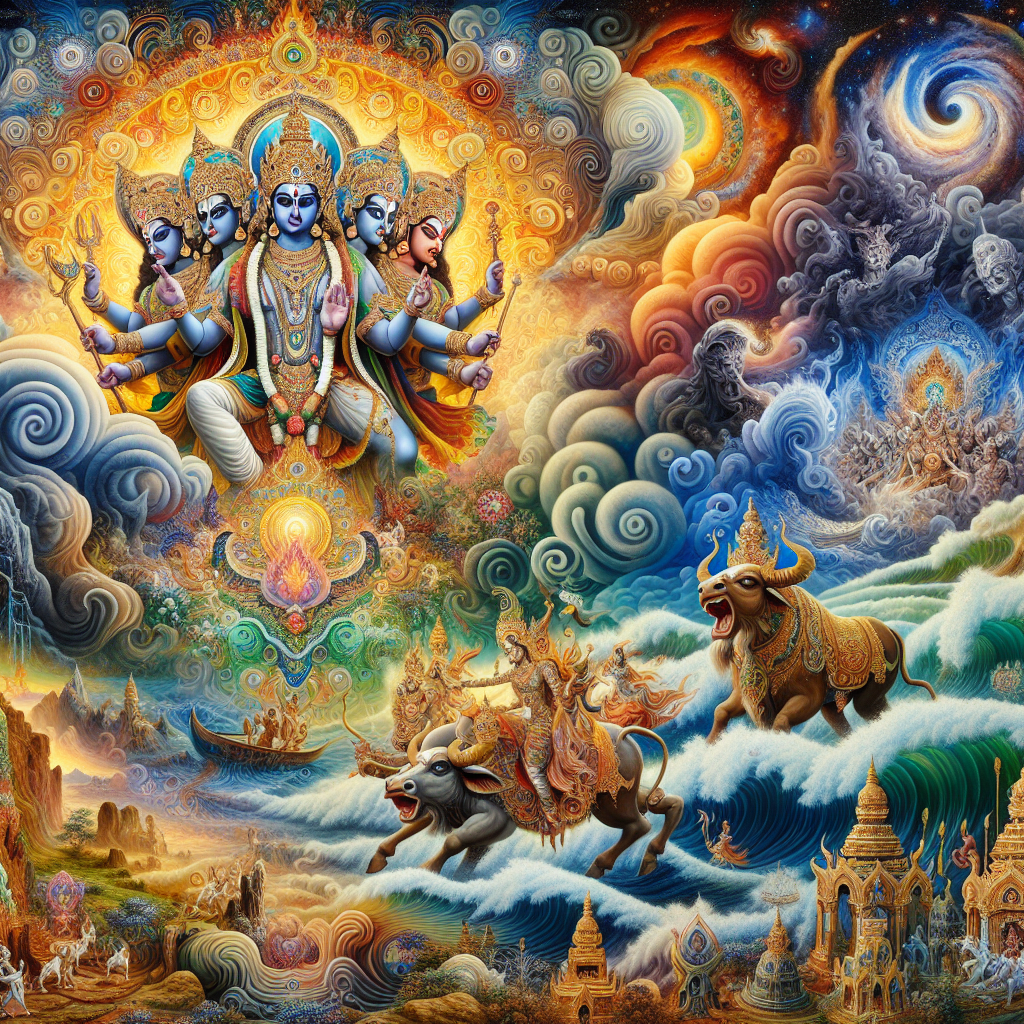Hindu Mythology: Unlocking the Timeless Tales That Shape Culture and Spirituality

Hindu mythology is a treasure trove of stories, deities, and moral lessons that have shaped one of the world’s oldest religions over millennia. With its intricate narratives and a pantheon of gods and goddesses, Hindu mythology serves as a guide not only to spiritual seekers but also to those intrigued by the philosophical questions of existence. In this article, we'll delve into some iconic stories, their meanings, and how they resonate in contemporary life.
The Cosmic Dance of Creation
At the heart of Hindu mythology lies the concept of creation and destruction, illustrated beautifully through the stories of gods such as Brahma, Vishnu, and Shiva. Brahma, the creator, is often depicted as a four-faced deity, highlighting the multifaceted nature of existence. Vishnu, the protector, manifests in various avatars, like Rama and Krishna, to restore cosmic order. Lastly, Shiva, the destroyer, represents the necessary end that paves the way for new beginnings. This cyclical understanding of life reinforces the belief that every end is merely a precursor to a fresh start—a concept that resonates deeply in modern life, where change is often met with resistance.
Lessons from the Epics
Two of the most significant texts in Hindu mythology are the Mahabharata and the Ramayana. The Mahabharata narrates the epic struggle for power between the Pandavas and Kauravas, while the Ramayana tells the story of Lord Rama's quest to rescue his wife Sita from the demon king Ravana. These tales are not merely adventures; they embody timeless moral dilemmas, such as duty versus righteousness (dharma) and the complexities of human relationships.
The character of Arjuna in the Bhagavad Gita, a part of the Mahabharata, exemplifies the internal conflict faced by many today. As he wrestles with the moral implications of battle, we are reminded of our choices and responsibilities in a world rife with ethical challenges. The lessons derived from these epics encourage us to seek inner strength, understand our duties, and navigate life's complexities with wisdom.
The Symbolism Behind Deities
Hindu deities are often rich in symbolism, each representing various aspects of life and spirituality. For instance, the goddess Durga embodies the fierce and protective qualities of motherhood and the triumph of good over evil. Her celebrated battle with the buffalo demon Mahishasura is symbolic of the victory of virtue over vice, a narrative that inspires courage. Similarly, the love story of Radha and Krishna encapsulates the essence of devotion, reminding us about the transformational power of love and longing.
The Relevance of Hindu Myths Today
Surprisingly, Hindu mythology is not only relevant but significantly influential in various aspects of contemporary culture, from literature and art to popular media. The themes of heroism, divine intervention, and moral dilemmas are timeless; they create a framework for understanding human emotions and relationships. With the rise of interest in spirituality and alternative philosophies in today’s fast-paced world, these stories offer insights and reflections that many find valuable.
Furthermore, as globalization spreads, the narratives of Hindu mythology have found a wider audience, sparking interest in cultural exchange. Movies, books, and even graphic novels inspired by these myths have gained popularity, allowing more people to engage with the profound wisdom woven into these stories.
Conclusion: Embracing the Myths
In an age where rapid change can make the future seem uncertain, tapping into the rich well of Hindu mythology offers not only a retrospective glance at traditional values but also guidance for our current lives. The intricate tales weave together a tapestry of lessons that encourage individuals to reflect on their purpose, ethics, and community. As we explore these narratives, we not only embrace a cultural heritage but also enrich our own lives with wisdom that can guide us on our journeys.